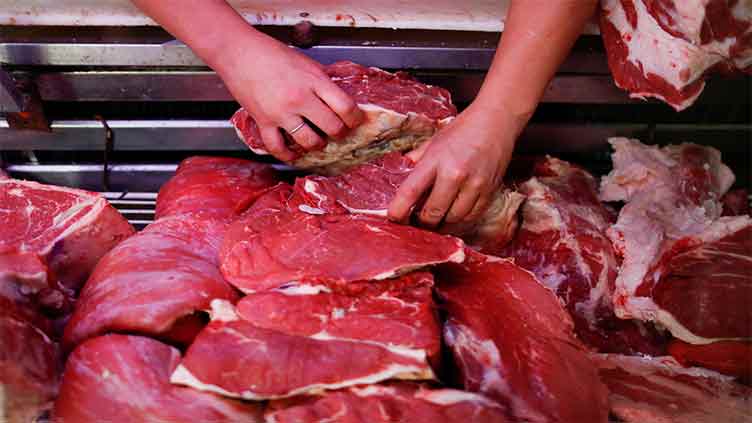Inflation, recession force Argentines to eat less beef

World
Inflation, recession force Argentines to eat less beef
BUENOS AIRES (Reuters) - Argentines, famed for steakhouses, sprawling cattle ranches and asado barbecues, are consuming less beef than ever, forced to tighten their belts by triple-digit inflation and a recession.
Beef consumption is down almost 16% this year so far in the South American nation where beef has always been an essential part of the social fabric, along with soccer and mate tea.
Many Argentine homes have in-built "parrilla" grills where families gather. Steakhouses dot street corners around Buenos Aires and people will huddle around make-shift barbecues for a taste of beef, even on construction sites or at protests.
"Beef is an integral part of the Argentine diet, it is as if pasta were eliminated for Italians," retiree Claudia San Martin, 66, told Reuters while waiting in line at the butcher shop. She said she was willing to cut back on other purchases such as cleaning products, but beef was sacred.
"Argentines can eliminate anything, I believe, in difficult times like this. But we can't do without meat," she said.
Still, the latest data show Argentines are this year eating beef at a rate of around 44 kilograms (97 lbs) per year, down sharply from more than 52 kg last year and as much as 100 kg a year in the 1950s.
Part of the long-term decline is a longer-term shift toward other meats like pork and chicken, as well as cheaper staples such as pasta. But this year's plunge has been driven by nearly 300% inflation and a stalling economy along with tough austerity measures by libertarian President Javier Milei.
Poverty is up, more people are homeless in major cities and lines have grown at soup kitchens. Many families have reduced consumption of staples, opens new tab like meat, milk and vegetables. They say they are yet to feel the benefit of slowing monthly inflation.


